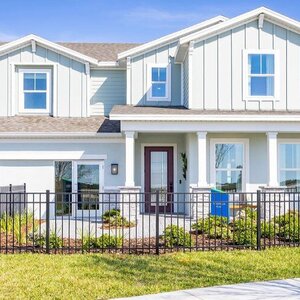The WPJ
THE WORLD PROPERTY JOURNALReal Estate Facts Not Fiction
Residential Real Estate News

Pending Home Sales in U.S. Climb 2.8 Percent in June
Residential News » Chicago Edition | By WPJ Staff | July 31, 2019 9:02 AM ET
According to the National Association of Realtors, pending home sales in the U.S. continued to ascend in June 2019, marking two consecutive months of growth. Each of the four major regions recorded a rise in contract activity, with the West experiencing the highest surge.
The Pending Home Sales Index, a forward-looking indicator based on contract signings, moved up 2.8% to 108.3 in June, up from 105.4 in May. Year-over-year contract signings jumped 1.6%, snapping a 17-month streak of annual decreases.
Lawrence Yun, NAR chief economist, said the 2.8% increase can be attributed to the current favorable conditions and predicted the rise is likely the start of a positive trend for home sales. "Job growth is doing well, the stock market is near an all-time high and home values are consistently increasing. When you combine that with the incredibly low mortgage rates, it is not surprising to now see two straight months of increases," he said.
Yun notes June's contract signings indicate that buyers are both enthusiastic about the market and of the potential wealth gain, but he added that home builders need to increase inventory. "Homes are selling at a breakneck pace, in less than a month, on average, for existing homes and three months for newly constructed homes," he said. "Furthermore, homeowners' equity in real estate has doubled over the past six years to now nearly $16 trillion. But the number of potential buyers exceeds the number of homes available. We need to see sizable growth in inventory, particularly of entry-level homes, to assure wider access to homeownership."
Joel Kan, AVP of Industry and Economic Forecasting for the Mortgage Bankers Associations says, "June's pending home sales data showed encouraging growth. Gains were seen in all regions, as buyers were helped by improving affordability from moderating home-price growth and lower mortgage rates.
Last month's increase was in line with the trend of continuing growth in purchase applications that we have seen for most of 2019. However, recent months of home sales data have sometimes diverged from other housing indicators because there are more first-time home buyers entering the market at a time when all-cash sales are declining. For the mortgage industry, this means a larger share of overall home purchases are now being financed with a mortgage.
The non-seasonally adjusted data still showed some year-over-year declines, but this may improve if we see housing inventory continue to grow, both from new construction and more homeowners deciding to sell."
June 2019 Pending Home Sales Regional Breakdown
All regional indices are up from May and from one year ago. The PHSI in the Northeast rose 2.7% to 94.5 in June and is now 0.9% higher than a year ago. In the Midwest, the index grew 3.3% to 103.6 in June, 1.7% greater than June 2018.
Pending home sales in the South increased 1.3% to an index of 125.7 in June, which is 1.4% higher than last June. The index in the West soared 5.4% in June to 96.8 and increased 2.5% below a year ago.
The Pending Home Sales Index, a forward-looking indicator based on contract signings, moved up 2.8% to 108.3 in June, up from 105.4 in May. Year-over-year contract signings jumped 1.6%, snapping a 17-month streak of annual decreases.
Lawrence Yun, NAR chief economist, said the 2.8% increase can be attributed to the current favorable conditions and predicted the rise is likely the start of a positive trend for home sales. "Job growth is doing well, the stock market is near an all-time high and home values are consistently increasing. When you combine that with the incredibly low mortgage rates, it is not surprising to now see two straight months of increases," he said.
Yun notes June's contract signings indicate that buyers are both enthusiastic about the market and of the potential wealth gain, but he added that home builders need to increase inventory. "Homes are selling at a breakneck pace, in less than a month, on average, for existing homes and three months for newly constructed homes," he said. "Furthermore, homeowners' equity in real estate has doubled over the past six years to now nearly $16 trillion. But the number of potential buyers exceeds the number of homes available. We need to see sizable growth in inventory, particularly of entry-level homes, to assure wider access to homeownership."
Joel Kan, AVP of Industry and Economic Forecasting for the Mortgage Bankers Associations says, "June's pending home sales data showed encouraging growth. Gains were seen in all regions, as buyers were helped by improving affordability from moderating home-price growth and lower mortgage rates.
Last month's increase was in line with the trend of continuing growth in purchase applications that we have seen for most of 2019. However, recent months of home sales data have sometimes diverged from other housing indicators because there are more first-time home buyers entering the market at a time when all-cash sales are declining. For the mortgage industry, this means a larger share of overall home purchases are now being financed with a mortgage.
The non-seasonally adjusted data still showed some year-over-year declines, but this may improve if we see housing inventory continue to grow, both from new construction and more homeowners deciding to sell."
June 2019 Pending Home Sales Regional Breakdown
All regional indices are up from May and from one year ago. The PHSI in the Northeast rose 2.7% to 94.5 in June and is now 0.9% higher than a year ago. In the Midwest, the index grew 3.3% to 103.6 in June, 1.7% greater than June 2018.
Pending home sales in the South increased 1.3% to an index of 125.7 in June, which is 1.4% higher than last June. The index in the West soared 5.4% in June to 96.8 and increased 2.5% below a year ago.
Sign Up Free | The WPJ Weekly Newsletter
Relevant real estate news.
Actionable market intelligence.
Right to your inbox every week.
Real Estate Listings Showcase
Related News Stories
Residential Real Estate Headlines
- Las Vegas Area Home Prices Uptick 4.3 Percent Annually in March
- Single-Family Rent Growth in U.S. Trends Upward in 2025
- U.S. Mortgage Rates Tick Down Post Trump Tariffs Commencement
- President Trump's 'Liberation Day' Tariffs Potential Impact on the U.S. Housing and Mortgage Markets
- Baby Boomers Biggest Cohort of U.S. Home Buyers in 2025 as Millennials Decline
- U.S. Monthly Housing Payments Hit Record High in 2025
- U.S. Pending Home Sales Uptick in February
- Global Prime Residential Rent Slowdown Continued in Late 2024
- Ireland Home Price Inflation Hits 8 Year High in Early 2025
- Existing Home Sales in America Uptick in February
- Great Miami Area Residential Sales Decline 15 Percent Annually in February
- Mortgage Rates Uptick in Mid-March, Ending 9-Week Decline in U.S.
- World Property Ventures Builds the Future of Real Estate with New Funding Round
- U.S. Builder Sentiment Declines Amid Economic Uncertainty and Rising Costs
- Black Homeownership Rates in U.S. Enjoy Largest Annual Increase of All Racial Groups
- Wealthy Renters Are Taking Over More of the U.S. Rental Market
- If U.S. Congress Does Not Extend NFIP Soon, Thousands of Daily Home Closings Impacted
- U.S. Mortgage Applications Spike 11 Percent in Early March
- Greater Palm Beach Area Residential Sales Rise in Early 2025
- New Apartments in U.S. Are Leasing at Slowest Pace on Record
- U.S. Mortgage Rates Drop to 4 Month Low in March
- Overall U.S. Mortgage Delinquency Rates Dip in December
- New Tariffs on Canada, Mexico to Impact U.S. Homebuilder Input Costs
- Monaco's Property Market: A Tale of Two Cities
- U.S. Home Purchase Cancellations Surge, 1 in 7 Sales Getting Canceled
- U.S. Pending Home Sales Hit Historic Low in Early 2025
- Greater Miami Area Residential Sales Dip in January
- Governor DeSantis Supports Ending Property Taxes in Florida
- WPV Aims to Become the Berkshire Hathaway of Real Estate Tech
- U.S. Home Sales Slump Continues in January
- Average Americans Spend 38 Percent of Monthly Income on Mortgage Payments
- Switzerland's Safe-Haven Appeal Grows with World's Wealthy Homebuyers
- U.S. Builder Confidence Rapidly Declines in February
- Las Vegas Home Sales Rise 6.7 Percent Annually in January, Condo Sales Dip
- Homebuyer Demand in America Drops to 5-Year Low in Early 2025
- Ownership More Affordable Than Renting in Most U.S. Markets
- The World's First Global Listings Service Launches, Called a GLS
- Home Prices Continue to Rise in 89 Percent of U.S. Metros in Late 2024
- Global Luxury Residential Prices Showed Gradual Improvement in Late 2024
- U.S. Construction Hiring Rate Drops to Lowest Levels in 5 Years
Reader Poll
Marketplace Links
This website uses cookies to improve user experience. By using our website you consent in accordance with our Cookie Policy. Read More





